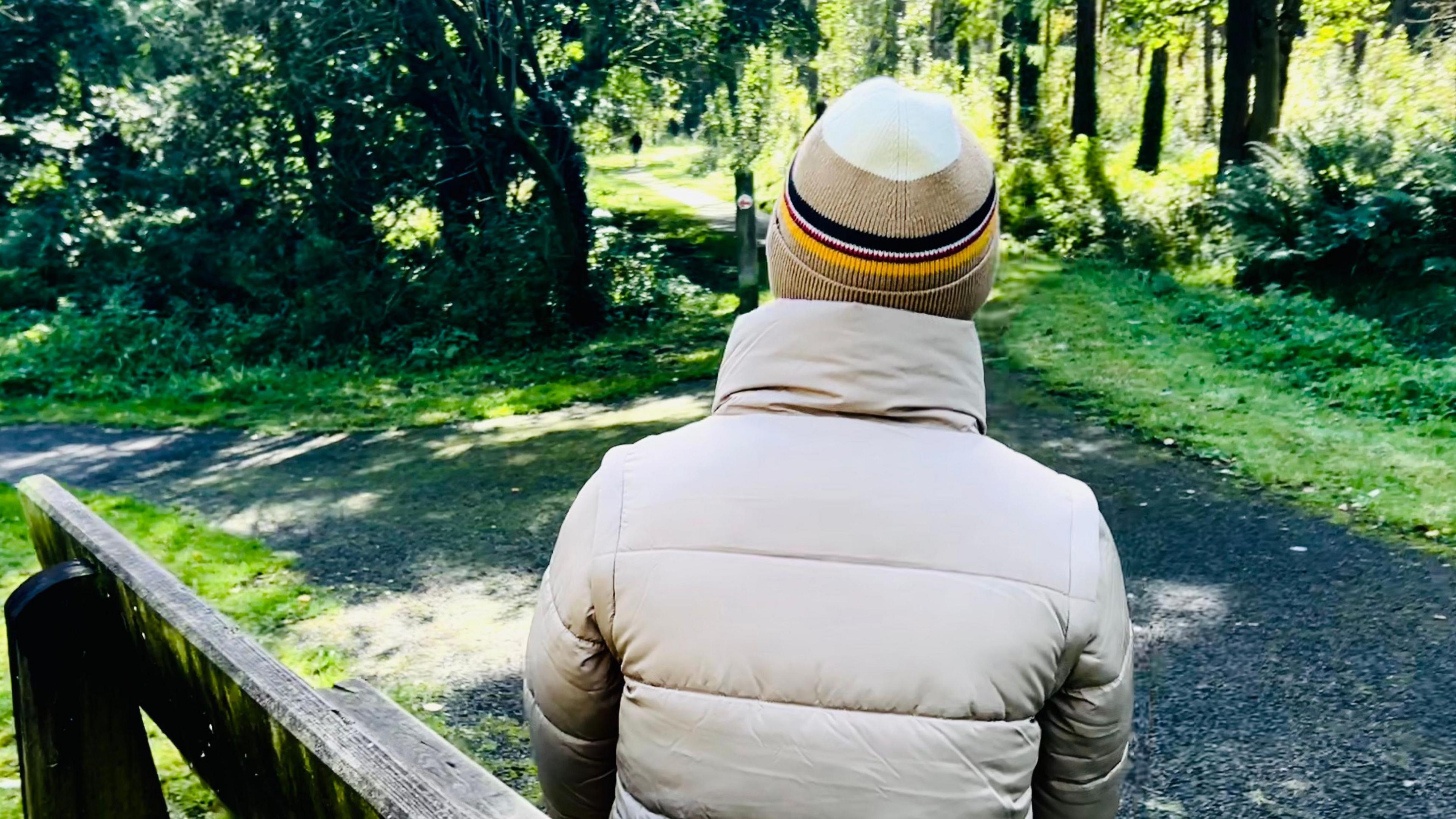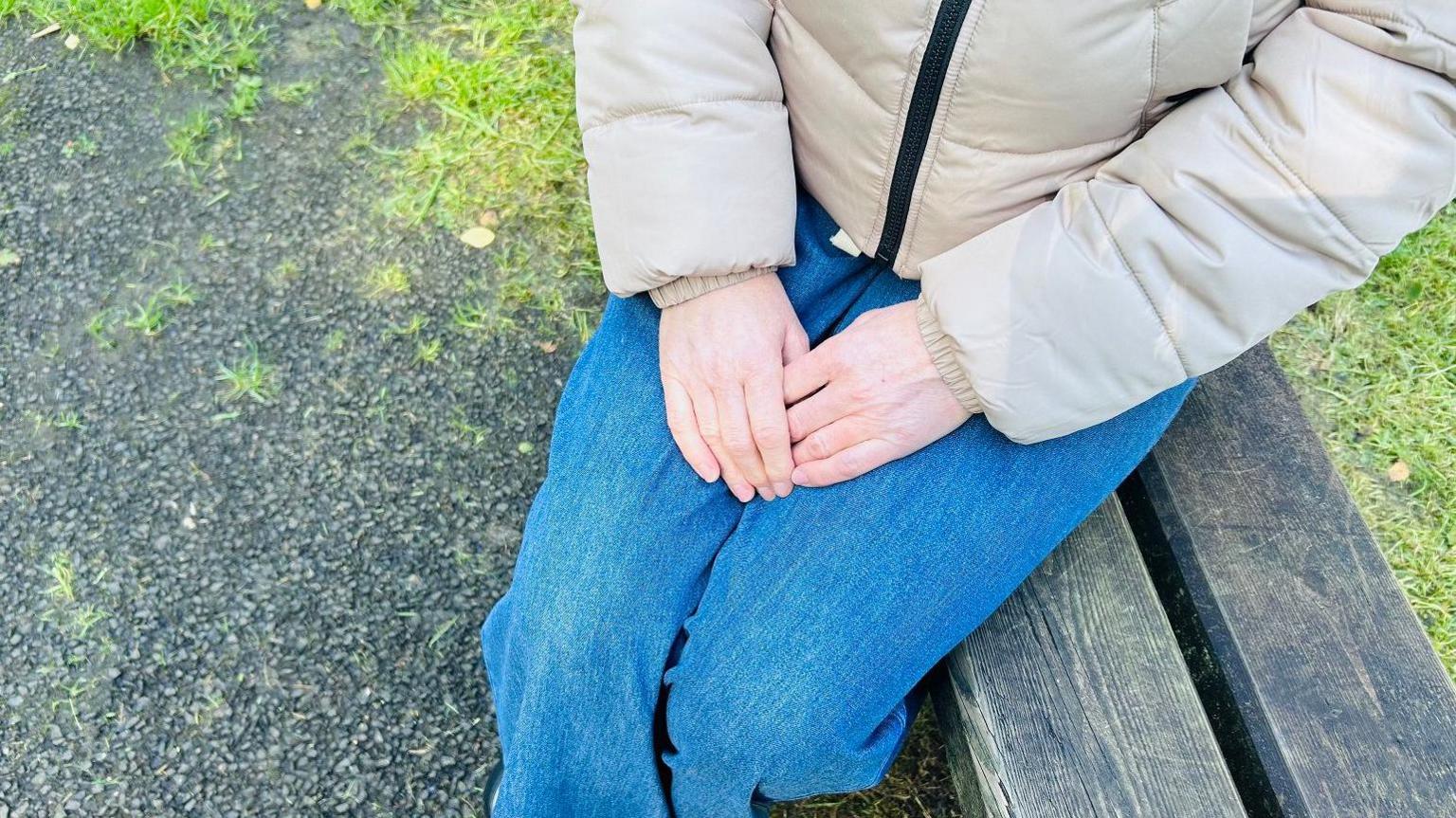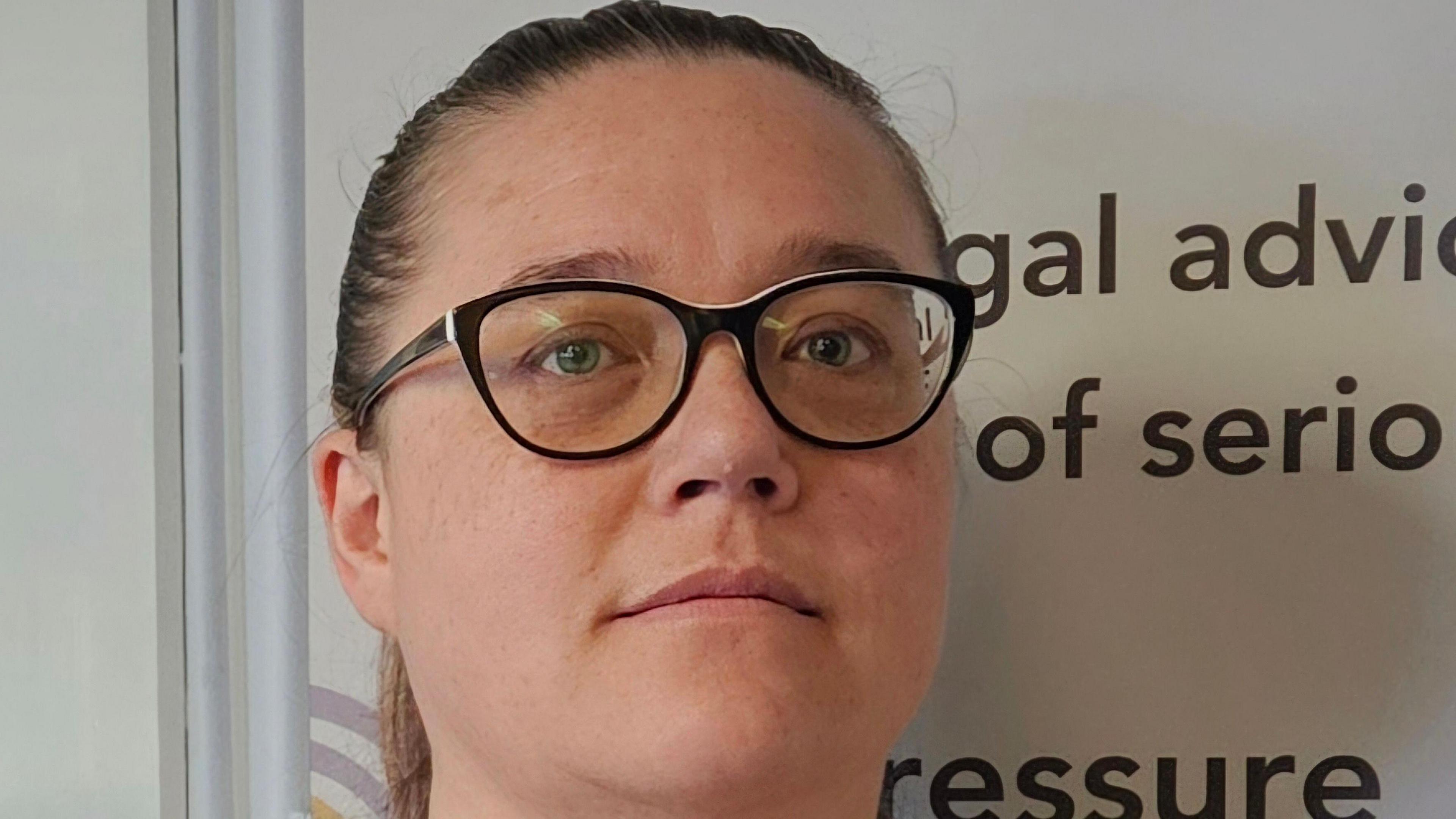Woman who was 'groomed and raped' praises free legal advice

Kate was groomed when she was a schoolgirl
- Published
A victim of a serious historical sexual assault has said free legal advice made her criminal justice journey bearable.
Victim Support runs a Sexual Offences Legal Advisors service (SOLA), which is funded by the Department of Justice.
There are three advisors for the whole of Northern Ireland, and only those who have reported the most serious sexual offences can access support.
More than 2,000 people have been referred for free legal advice from SOLA since it was introduced in 2021 - there are thousands of sexual offences reported to the Police Service of Northern Ireland (PSNI), external every year.
'I was made to feel responsible for the abuse'
Kate, not her real name, told BBC News NI about what happened to her as a teenager.
“When I was 14 years old, I was groomed and raped by a teacher’s husband," she said.
"The abuse began when I was a fourth-year pupil at Garvagh High School.
“I was asked if I would sell tickets for a charity my abuser was involved with. He was 20 years older than me.
"He would collect us and leave us back home again in his jeep.”
Kate said one night the man asked her for a goodnight kiss, and that was when the abuse began.
The grooming continued over the following months, and he became physically and sexually abusive.
"He was extremely controlling and very manipulative, leading me to believe we were involved in some kind of romantic relationship," Kate said.
"I was completely brainwashed by him.”
“One night he drove me to a church car park, where he raped me. It was a sudden and violent assault, and it came without any warning.
"He told me: 'This is what you want'. I was so controlled by him I didn’t even think he had done anything wrong; in fact, I felt responsible for everything he did to me.”
Kate kept the sexual assault secret for many years.
“I never spoke of my childhood abuse to anyone for decades, but I became really ill and, thinking I might not recover, I told my husband," she said.
"I’d been made to feel I was responsible for the abuse, and I couldn’t bear to take all of that guilt and shame with me,” she said.
Eventually Kate went to her GP to ask for help.
"I wrote it on a piece of paper in case I couldn’t say it out loud,” she said.
“After almost a year of counselling, I was able to report the abuse to the police, something I never thought I’d be able to do.”
'It was my lowest point'

Before the victim contacted SOLA she had almost considered giving up
Like many people, Kate experienced delays in the criminal justice system.
She said it was a long and difficult wait, and when she finally received a letter with a decision to prosecute, she had an overwhelming sense of relief.
She said her case was adjourned, many times.
With each adjournment it became more difficult and frustrating.
"I was told it might never get to trial," Kate said.
"I was devastated; this was definitely my lowest point. I almost considered giving up.
"This was when I was told to contact the SOLA team.”
The SOLA scheme was one of the 2019 Gillen recommendations, after a review into the handling of serious sexual offences by the criminal justice system in Northern Ireland.
Earlier in 2024, funding for the service was extended by the justice minister for another year, but it remains a pilot scheme.
Kate said SOLA helped answer her questions and liaised with the Public Prosecution Service and PSNI.
"They organised meetings, arranged a court visit prior to trial, and supported me before and after trial and sentencing," she said.
Attacker released
Kate’s attacker pleaded guilty to indecent assault but was told by the judge that had he committed the same offence today he would have faced a charge of rape and a “much more significant penalty.”
He was handed an 18-month sentence and was released this year.
“It’s really difficult to say how I feel about his release because it’s still early days, and I feel I’m still processing everything," Kate said.
"I would benefit from knowing the rules that surround his time on licence and his probation. I have no idea what this really means.”
'We’re trying to give people back their autonomy'

Jolena Flett helps run the SOLA service
There is no official support for victims of crime on the release of perpetrators.
Victim Support did run an "After Court" support service, which helped people at that stage of the criminal justice journey, but it lost its funding.
Jolena Flett from Victim Support, which runs the SOLA service, and used to run the "After Court" service said while budgets are cut and priorities change, the scheme had good outcomes.
“I don’t think anyone would say it wasn’t a worthwhile project," she said.
“It was about what happened afterwards. Picking your life up after this whole process goes away and you are left in that space.”
Kate says Victim Support and the SOLA team are still there for her now.
“I can still lift the phone to them now, which is incredible; they’re still supporting me," she said.
Ms Flett said not understanding the legal terminology and what the process might look like could be confusing for victims.
"We’re trying to give people back their autonomy; we’re trying to give them back some of the power that they’ve lost," she said.
“One of the main things we’re able to provide to someone is the confidence to stay engaged in a system that has a lot of delay.”
“The number one thing that we always say is that people want communication.
"Even if you don’t have something significant to tell them, if you’re not talking to them, they’re not staying connected with the process, and they start to lose faith”.
If you've been affected by any of the issues raised in this piece, details of help and support is available on BBC Action Line.